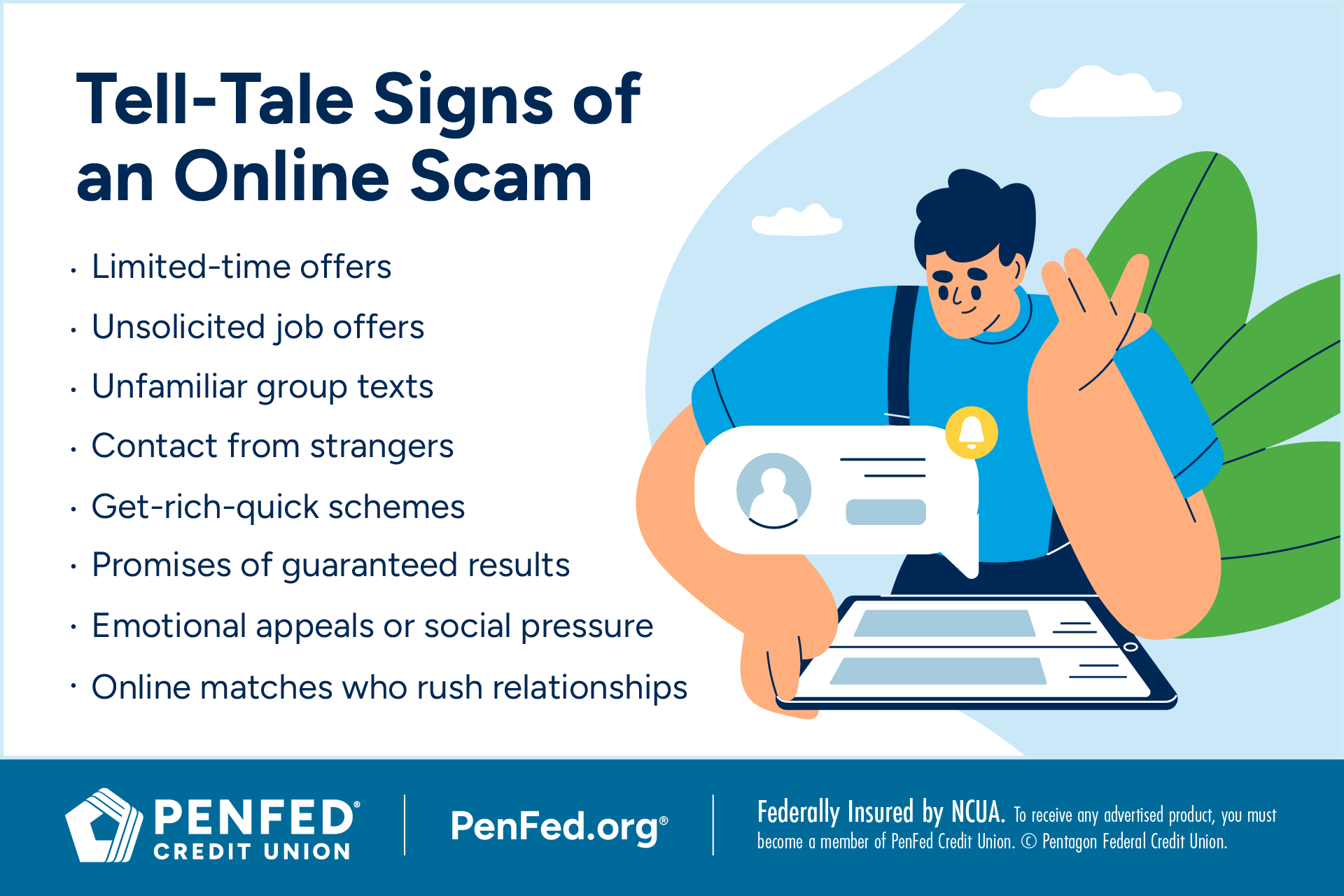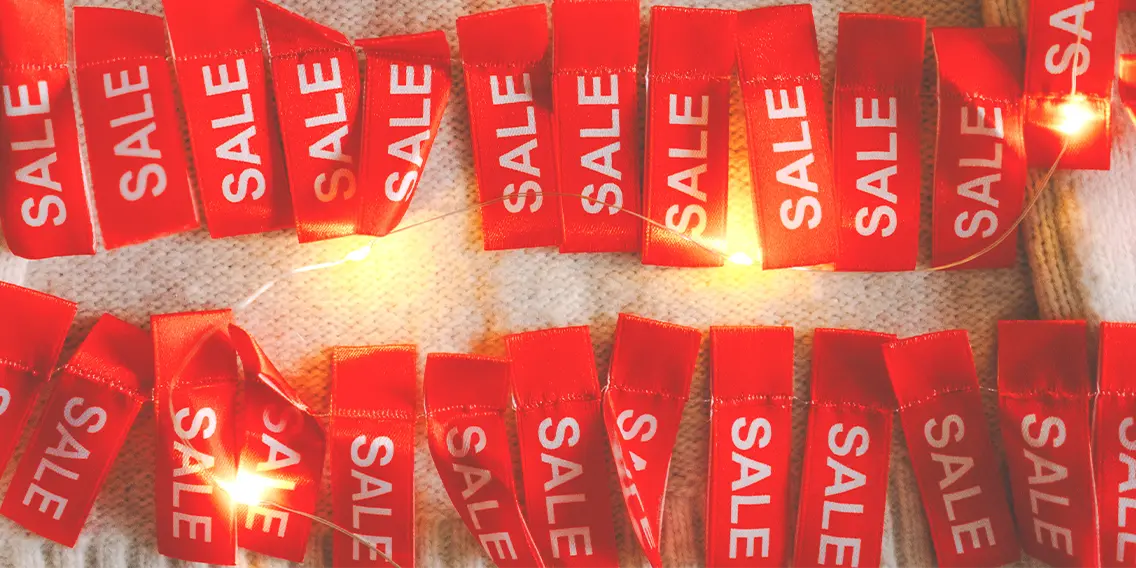Security
How to Recognize a Pig Butchering Scam and Avoid Getting Involved
What You’ll Learn: Learn what a pig butchering scam is, how to identify one, and how to avoid getting involved.
Expected Read Time: 8 MINUTES
You receive a text from a number you don’t recognize. You politely respond, “You’ve got the wrong number.” To your surprise, the texter replies and starts a conversation.
This could be an honest mistake — but it could also be the start of a highly sophisticated online con known as a “pig butchering scam.”

What Is a Pig Butchering Scam?
Pig butchering scams get their colorful (and gory) name from the process of fattening hogs before slaughtering them. Except in this case, it’s a scammer making friends with you before taking your money. These cons have four distinct phases:
- Initial contact is made by a scammer. The scammers are often enslaved by organized crime rings who force them to contact potential victims through social media platforms, dating apps, online networking sites, and job boards.
- Fattening, a phase where the scammer gets to know and builds trust with a victim. They may pretend to be romantically interested in the victim, befriend the victim, or offer the victim a job.
- Slaughter refers to the phase where the con pays off. Scammers may persuade victims to send them money, invest in a fake company or cryptocurrency, or reveal sensitive personal information that can be used for identity theft. Over time, scammers ask for larger and larger sums of money, threatening to end contact if victims refuse to pay.
- Shaming and disappearance. Scammers will continue their relationship with the victim until the victim is unable to pay or catches onto the scam. Scammers may taunt their victims to shame them into silence, or they may simply vanish along with any accounts, websites, or apps they’ve been using.
Scammers contact potential victims through social media, dating apps, online networking sites, and job boards.
What Makes Pig Butchering Scams So Dangerous?
Pig butchering scams are powerful because they are professionalized scams. A network of criminals working together has the potential to set up very convincing fake websites or investment apps and highly realistic online profiles. Even if a victim gets suspicious, these online artifacts trick victims into believing the person they are communicating with is real.
Pig butchering networks also invest a lot in creating robust online profiles because they get so much mileage from each one. One enslaved scammer operating behind a single fake account might work for many hours every day making connections with multiple targets. As a result, that one profile has the potential to net the scam ring thousands of dollars before the scammer or ring members are caught.
In fact, a study from the University of Texas at Austin showed more than $75 million was lost to pig butchering scams in 2023 alone with individuals often losing hundreds of thousands of dollars. That exceeds the amount lost to most other financial crimes, according to reports from the FBI.
A study from the University of Texas at Austin showed more than $75 million was lost to pig butchering scams in 2023 alone.
What’s Being Done About Pig Butchering Scams?
These scamming networks often go unpunished even when they’re caught. Many pig butchering scams operate internationally, making it difficult for law enforcement and government agencies to take action against them.
However, US law enforcement agencies are beginning to combat these crime rings. As more research emerges from cybersecurity monitoring organizations, governments in countries harboring pig butchering rings are receiving more pressure to crack down on both these crime rings and the human traffickers who supply their workers. Social media groups are also facing pressure to implement protective measures for their users.
Many pig butchering scams operate internationally, making it difficult to take action against them.
How to Spot a Pig Butchering Scam in Real Life
In general, be suspicious of any stranger who approaches you online or through text message offering an investment opportunity or romantic relationship. Here are other tell-tale signs you can also watch for:
- Unexpected contact through email, text, social media private messages, or replies on social media
- Inclusion in group texts with phone numbers you don’t recognize
- Contact from strangers on encrypted messaging apps such as WeChat or WhatsApp if
- Invitations to invest in new or confusing products or trading platforms such as cryptocurrencies or online banks you haven’t heard of
- Employment offers from jobs you haven’t applied for
- Bold promises like guaranteed results or unusually high returns
- Emotional appeals such as promising you an easy way out of debt, a way to double your retirement, or money to send your child to their dream college
- Online matches quickly shower you with tons of attention and push for a relationship quickly without actually meeting in person
- Limited time to get in on an opportunity
The Three Most Common Types of Pig Butchering Scams
Pig butchering scams can take many forms. The most efficient crime rings have premade templates they can implement quickly over and over just by changing small details each time. While they are constantly developing new ways to use their templates, their strategies frequently fall into these common camps:
1. Investment Scams
Most pig butchering scams revolve around cryptocurrencies because they’re difficult to track. Much of the general public is unfamiliar with crypto, and new ones launch frequently, making it easy to pass off fakes. Scammers advertise these fakes in several ways, including via:
- Emails
- Messages through text or encrypted messaging apps
- Direct, private messages on social media
- Comments on public social media posts
- Messages through job or professional networking sites
Often, scammers will direct users to download a specific investing app and create an account. Victims will deposit funds in the account over several months (or years!) while the app shows steady gains. Victims only become aware the app is not real when they try to withdraw funds.
Scammers will direct users to download a specific investing app and create an account.
2. Group Chat Scams
An emerging trend in pig butchering scams involves creating group chats around investing, often but not always related to cryptocurrencies. Scammers add large numbers of potential victims to the group. Many potential victims will leave; those who stay are more likely to end up investing.
Often, some members of the group chat are actually part of the scam ring. They may show enthusiasm, ask leading questions, or share about their personal success with particular investments. This primes other members of the group to buy into the scam.
An emerging trend in pig butchering scams involves creating group chats around investing.
3. Romance Scams
These scams often happen on dating sites, where a scammer sends a message to a victim. If the victim responds, the scammer showers them with attention and pushes for the relationship to move quickly. Importantly, scammers always have excuses for why they can’t meet or talk through videochat.
Scammers may spend weeks or months developing rapport with a victim before asking for financial help or an investment. They may use emotional appeals like claiming financial help proves the victim’s love for the scammer, or that any investments will be used to build a future together.
Scammers always have excuses for why they can’t meet or talk through videochat.
How to Protect Yourself From Pig Butchering Scams
Although online and text scams are constantly evolving, there are some simple steps you can use to protect yourself and your loved ones.
Keep Personal Information Private
Some information should not be shared with online acquaintances, no matter how nice they seem or how great their offer sounds. This includes your:
- Social security number
- Credit card number
- Bank information (including your debit card PIN, account numbers, and online login credentials)
Other information should be protected, too, since it can often be used to log into your online accounts. This includes:
- Full legal name
- Full birthday
- Names of your parents, grandparents, siblings, and children
Don’t Send Money to Strangers
In most cases, it’s impossible to recover money once it’s been sent to scammers. Only send money to people you know offline, and always use secure tools like Zelle to make the transfer.
Never Invest in Unfamiliar Products
Don’t put money into investment opportunities if you don’t understand how they work. If you’re very tempted by an opportunity, consult an expert such as a representative from your financial institution or a financial advisor for guidance.
Avoid Promises of Outrageous or Guaranteed Returns
“If it’s too good to be true, it is,” has become an age-old adage for a reason — it’s usually right. No investment can guarantee unusually high returns, and legitimate investments will disclose any risks you’re undertaking.
Verify Information
If someone suggests a special app or investment opportunity, search for it online with the word “scam.” Check the Better Business Bureau (BBB) scam tracker and online forums like Reddit where people are likely to post complaints about scams.
How to Recover From a Pig Butchering Scam
Here are steps you can take to recover if you’ve been involved in a pig butchering scam. It’s important to act quickly to minimize the impact and protect your future.
1. Stop Responding to Messages
When you receive a suspicious message, don’t respond. Responding lets scammers know your number works and may make them send more messages. If you’ve already responded to a message, stop immediately.
Mark emails as spam or report them as phishing attempts. Block and report text messages. Then report these attempts to the appropriate authorities.
2. Contact Your Bank or Credit Union
Be honest and open. The more information you can provide, the more your financial institution can help you. Ask them if you need to close old accounts and open new ones or if you need to replace your debit and credit cards to prevent identity fraud.
Stop Sending Money
Stop any transfers or payments related to the scam. Once you’ve taken screenshots and recorded any email addresses, usernames, or phone numbers for reporting purposes, disconnect your accounts and uninstall any apps you’ve been using. Block the scammers.
Report the Scam
Shame prevents many people from ever reporting when they’ve been victimized by scammers. Unfortunately, this prevents authorities from tracking and dismantling these scam rings — and it lets the scammers get away with their crimes.
You can help stop pig butchering scams by reporting them to the:
You should also file a report with your local police to establish official documentation of the crime. If you later become a victim of identity theft, a police report could help you dispute fraudulent charges and protect your credit report.
If you later become a victim of identity theft, a police report could help you dispute fraudulent charges and protect your credit report.
The Takeaway
Online scammers are becoming increasingly sophisticated with their cons. But with a privacy-first mindset and a little awareness, you can protect yourself and your assets from cybercrime.
Have More Questions About Security? PenFed Has Answers
Learn more about protecting yourself from online theft and threats.




